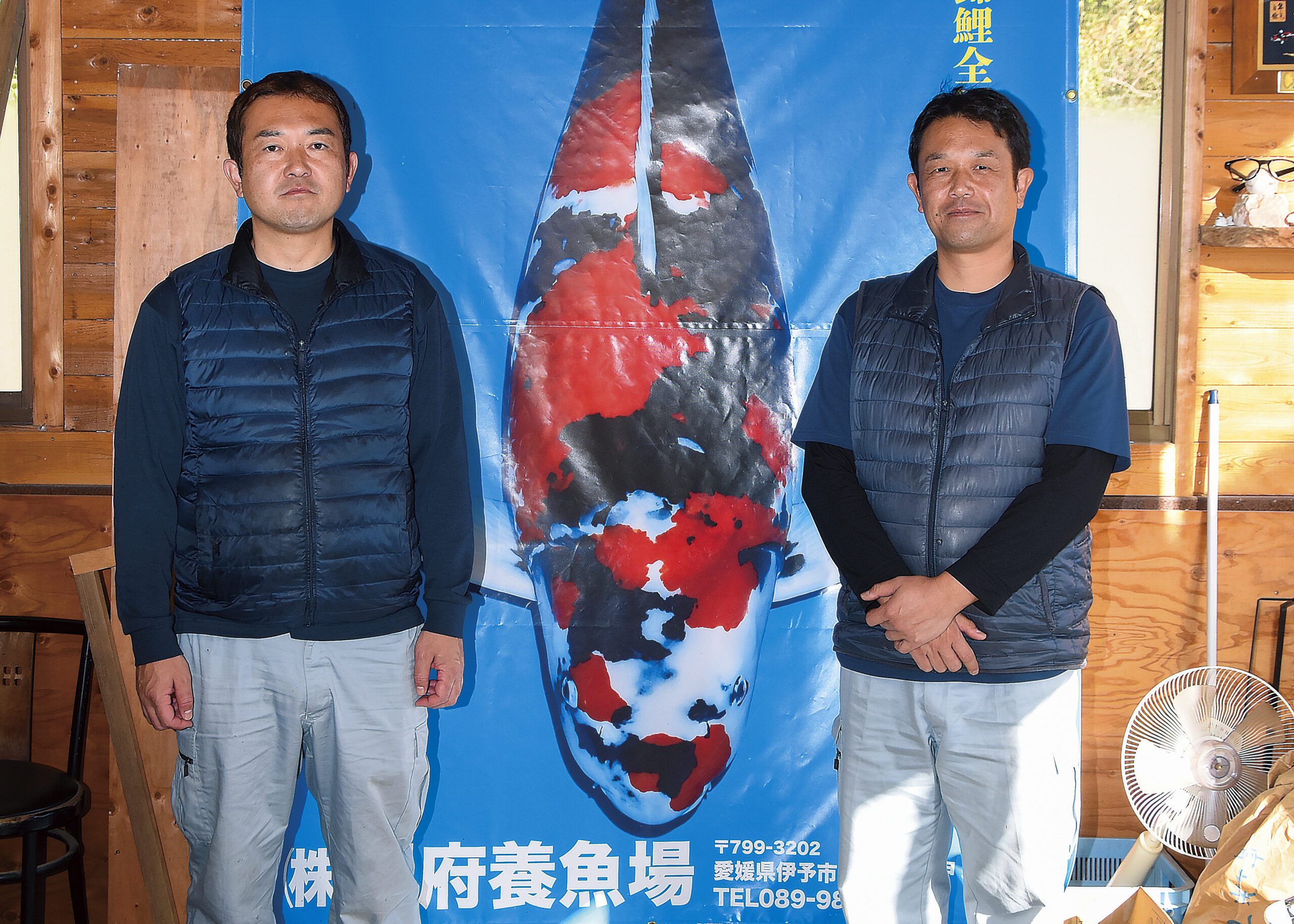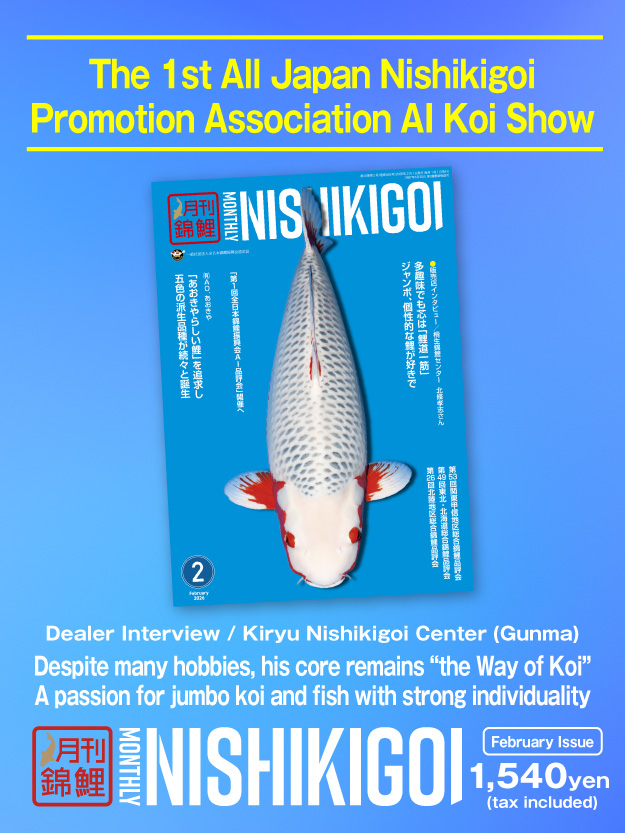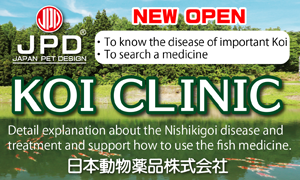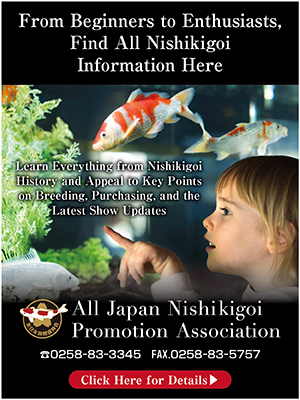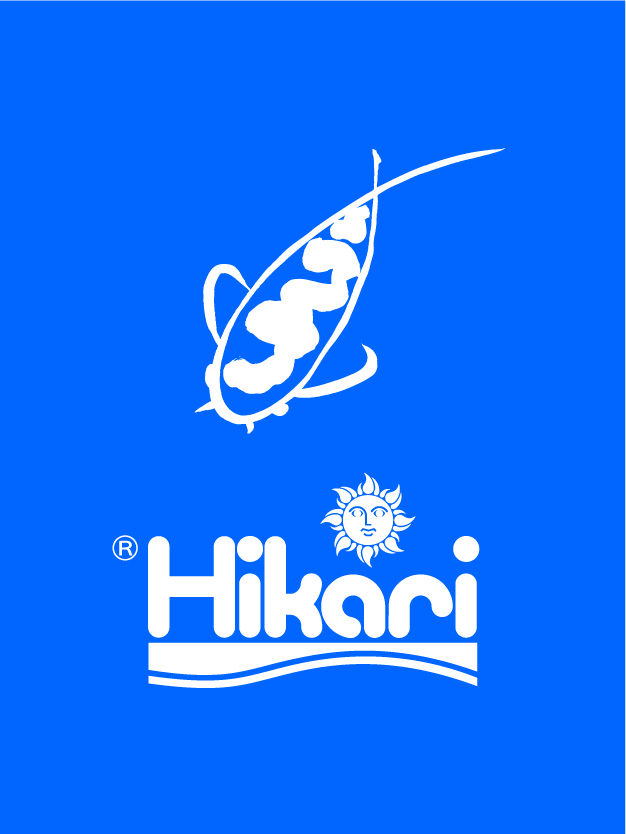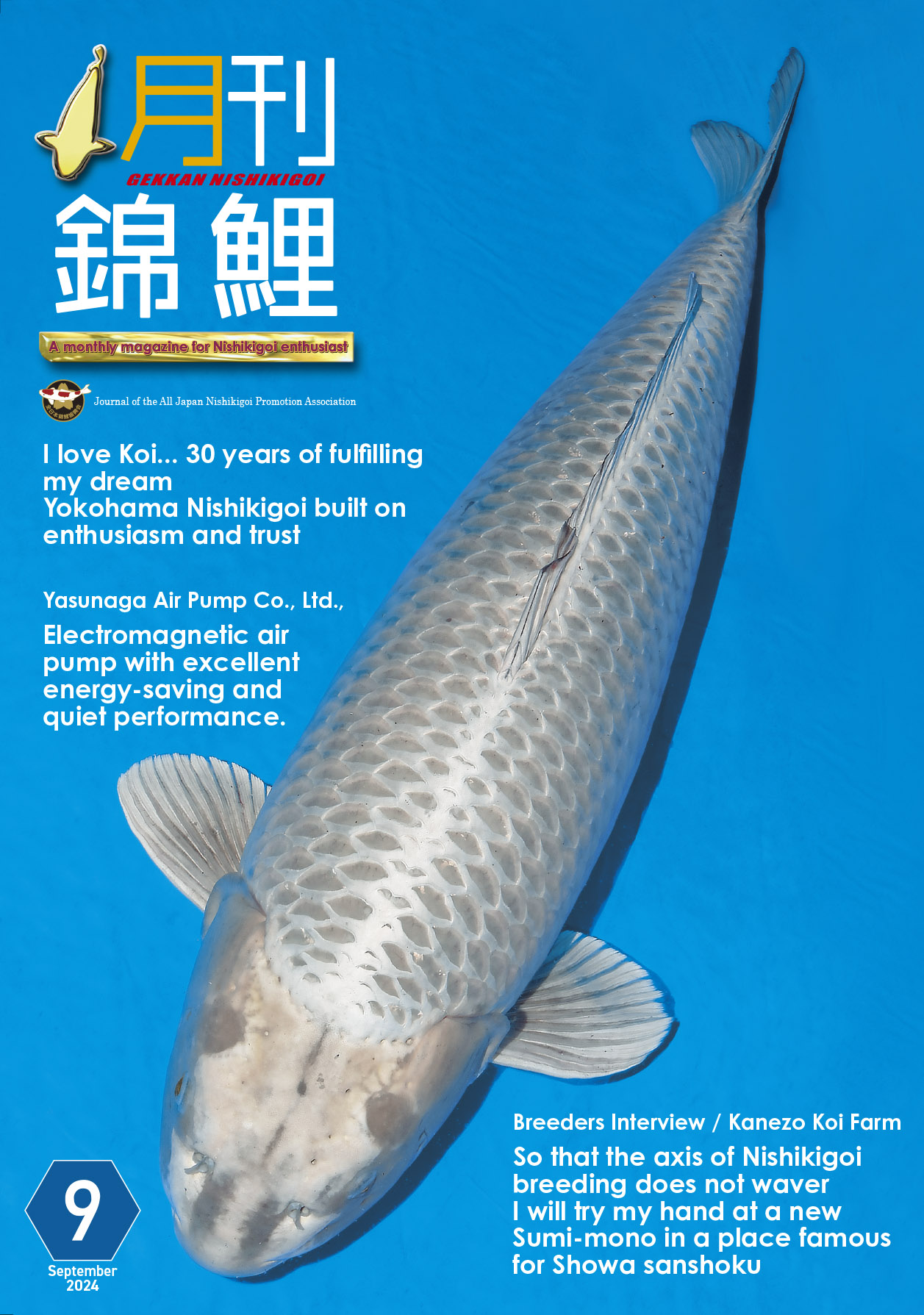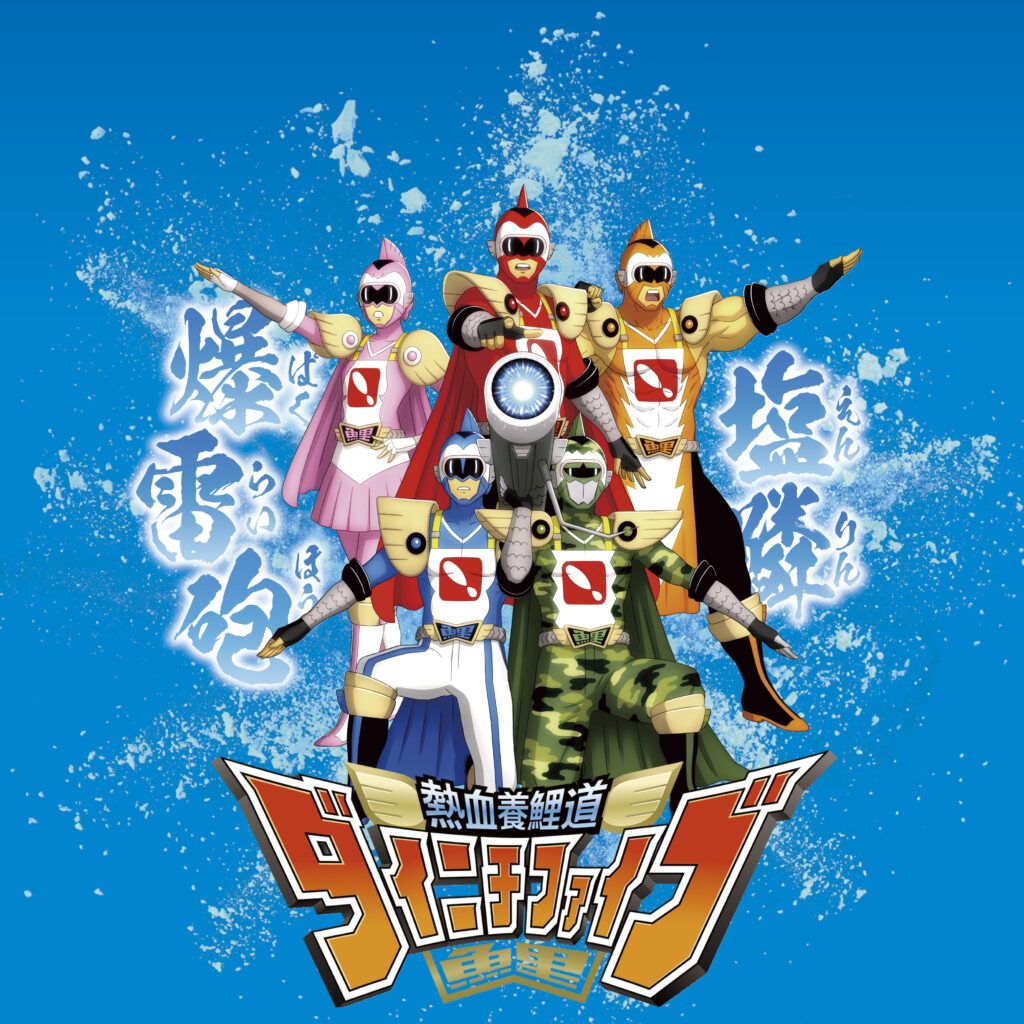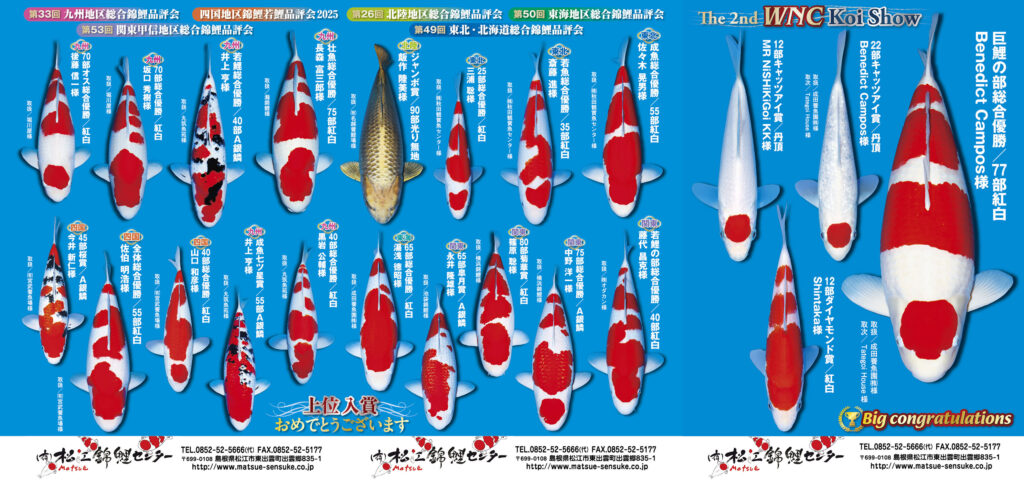Breeders interview Nobuhiro Inoue and Takaharu Inoue/Beppu Fish Farm (Ehime prefecture)
With a strong focus on Ginrin Taisho Sanshoku, the farm is also dedicated to producing impressive large-sized koi for the All Japan Combined Nishikigoi Show.〈Part1〉
The number of visiting dealers and hobbyists differs significantly between the well-known production areas, such as Niigata, Hiroshima, and Fukuoka, as well as other regions.
Beppu Fish Farm Co., Ltd. is a “solitary koi farm” with no other breeders nearby. The farm is committed to producing high-quality koi to attract customers. In recent years, with the support of major distributors, it has seen an increase in top-ranking results at the All Japan Combined Nishikigoi Koi Show. Represented by Ginrin Taisho Sanshoku, varieties such as Taisho Sanshoku and Hikari Mugimono are receiving high praise, indicating the potential for further success in these highly competitive breeds. I spoke with Nobuhiro (right), Regional Director of the Shikoku District of the All Japan Nishikigoi Promotion Association, and his younger brother Takaharu (left), who is drawing on his experience at Sakai Fish Farm Co., Ltd. to enhance their production and take it to the next level.
Transitioning from retail to dedicated breeding.
Inoue brothers build around Sakai bloodline.
—You used to have a retail shop besides this fish farm (Futami Cho, Iyo City), right?
Nobuhiro: That’s right. It was in the centre of Matsuyama City.
—Regarding the name “Beppu Fish Farm,” I understand that it was not originally started by your father (Katsuyuki) but by someone else.
—As for the name “Beppu Fish Farm,” I understand that your father, Katsuyuki, didn’t initially establish it but by someone else.
Nobuhiro: My father’s uncle, Mr. Beppu, first put up the sign in 1961. My father took over after that. My uncle had three daughters and no sons, so it seems my father was the only one who could carry on the business.
—So, Nobuhiro, did you get involved in the business first?
Nobuhiro: Yes, that’s right. I had helped out part-time while I was a student at Matsuyama University. After I graduated, it just felt natural to join the company full-time.
—You used to work at Sakai Fish Farm, right, Takaharu?
Takaharu: Yes. I went to university in Hiroshima, and while there, I worked part-time at a fish shop in Hiroshima.
—That was Sakai Fish Farm?
Takaharu: No, I worked part-time at Yasuai Fish Shop (Hiroshima City), but the owner, Mr. Tanioka, told me to go to Sakai Fish Farm. So, I spent about two months working part-time there during summer break, and I really enjoyed it—that’s what led me to join the company after graduation.
―Did you work at Sakai Fish Farm to eventually join the family business?
Takaharu: I didn’t think about it at that time. We didn’t do much breeding back then. It was more of a goldfish and tropical fish shop, mainly focused on retail. We did a little breeding, but not much.
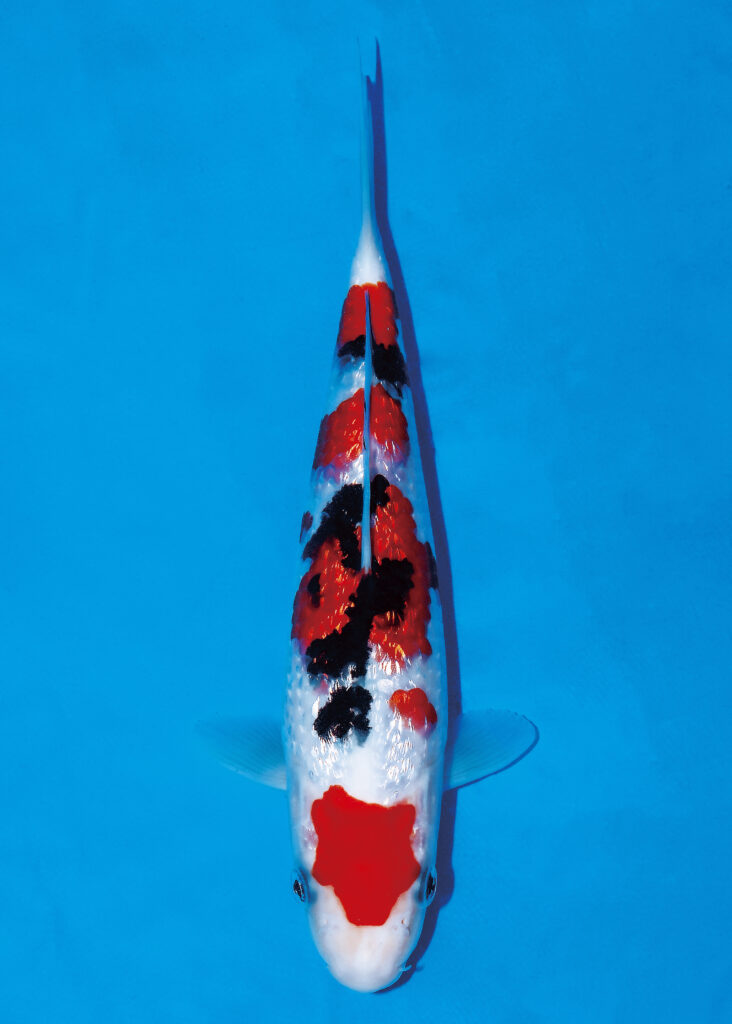
Baby Champion
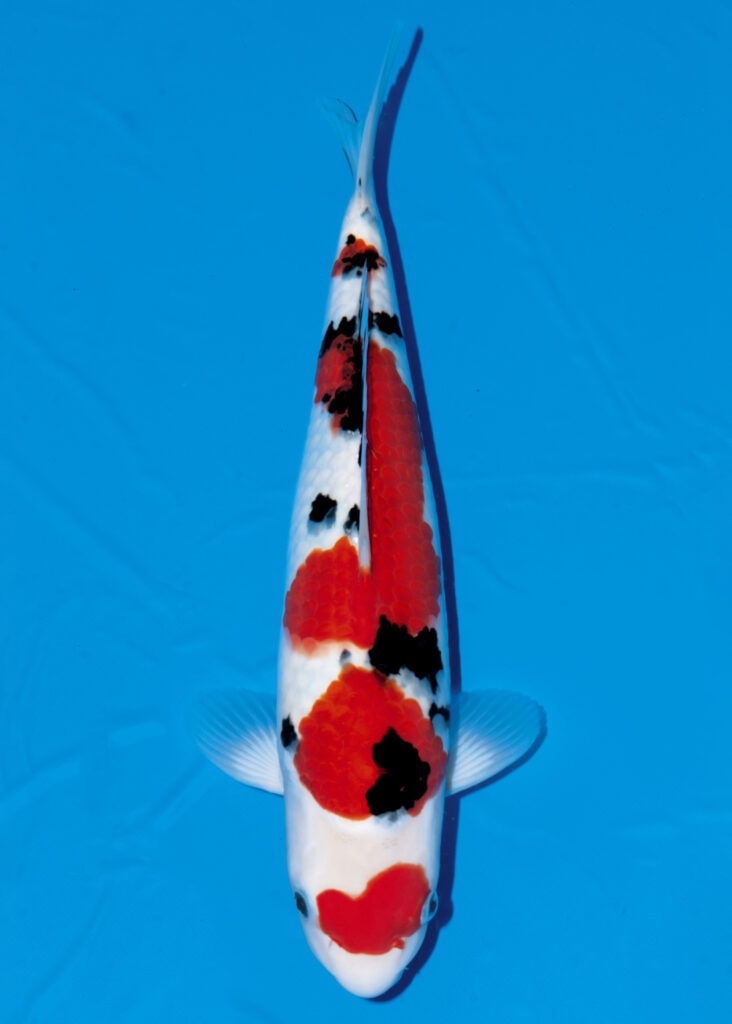
35bu Kokugyo Prize

